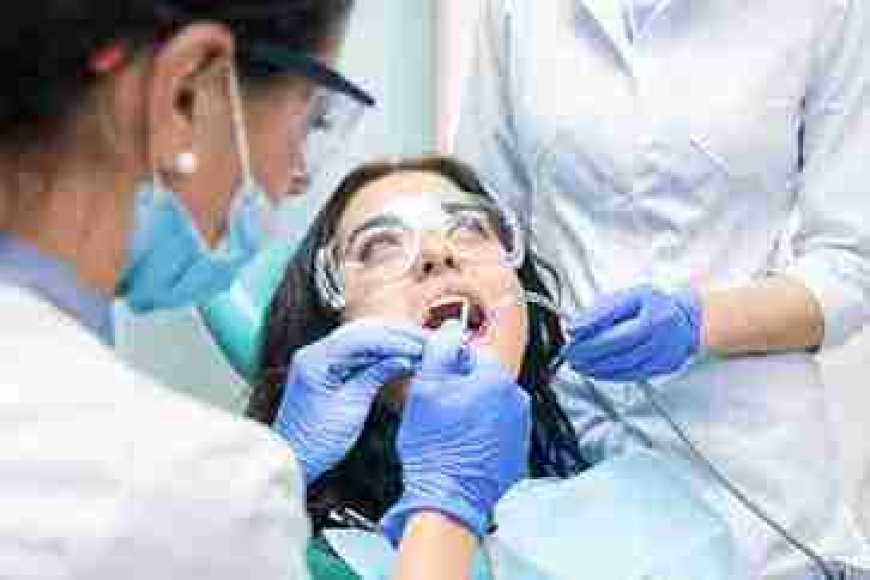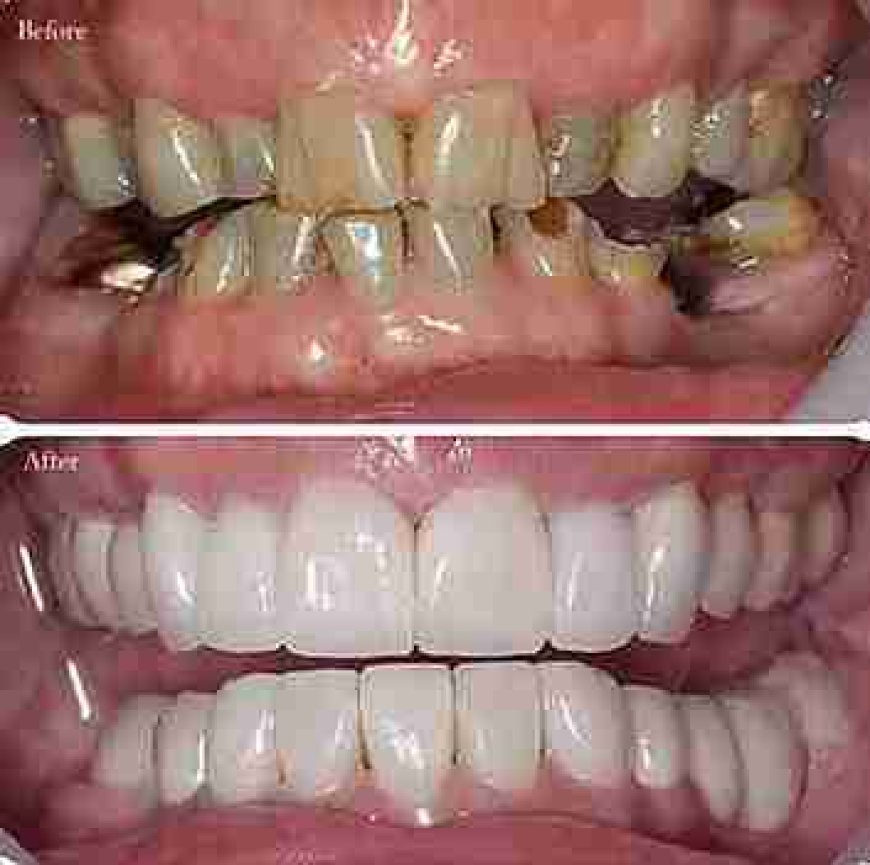How Hormones & Lifestyle Raise Women’s Risk of Dental Issues
Daily habits & hormones affect women’s dental wellness. Expert tips and guidance for long-term smile care at every stage of life

Oral health is a crucial aspect of overall wellbeing, yet many people overlook how significantly it is influenced by biological and lifestyle factors, especially in women. Hormonal fluctuations that occur throughout various life stages, coupled with everyday habits, can heighten a womans risk of developing dental issues. From puberty to menopause, womens oral health can shift dramatically, making early intervention and routine care more essential than ever.In this blog, we explore how hormonal changes and modern lifestyle choices affect womens dental health and offer practical advice on managing these risks effectively.
The Role of Hormones in Oral Health
Hormones such as oestrogen and progesterone influence blood flow to the gums and impact the bodys inflammatory response. This means that hormonal changes can make gum tissues more sensitive to plaque and bacteria, increasing the risk of gingivitis and periodontal disease.
Key Life Stages and Their Effects:
- Puberty Increased hormone levels may cause red, swollen, or bleeding gums.
- Menstruation Some women experience menstruation gingivitis, a temporary form of gum sensitivity and inflammation.
- Pregnancy Hormonal surges can increase the risk of gum disease and tooth sensitivity.
- Menopause A drop in oestrogen levels may result in dry mouth, a burning sensation, and receding gums.
Women experiencing these symptoms should consult a hygienist in Earlsfield for tailored care, such as gum therapy or scaling, to mitigate long term complications.
Pregnancy and Related Dental Concerns
Pregnancy introduces several oral health risks due to hormonal changes, nausea, and shifting daily routines. One of the most common issues is pregnancy gingivitis, which can progress into periodontitis if not managed.
Additional Concerns During Pregnancy:
- Morning sickness: Repeated vomiting can coat teeth in stomach acid, leading to enamel erosion.
- Post-Vomiting Oral Care:Begin by rinsing your mouth with water or a fluoride mouthwash, then wait 30 minutes before brushing to protect your enamel.
- Dental visits: The second trimester is considered the safest time for any necessary dental treatment.
Consulting adentist in Earlsfieldduring pregnancy is not only safe but encouraged. Regular monitoring ensures both mother and baby benefit from optimal oral health.
Lifestyle Habits That Increase Risk
Modern lifestyles often contribute to dental issues that disproportionately affect women. Some habits and behaviours can damage the teeth and gums over time.
Risk Factors Include:
- Smoking and Vaping:Increases the likelihood of gum disease and slows the healing process.
- Sugary and Acidic Diets:Lead to dental decay and gradually erode tooth enamel.
- Eating disorders: Conditions like bulimia expose teeth to acid and cause dry mouth.
- Inadequate hydration: Common during menopause, worsens dry mouth symptoms.
- Stress and bruxism: Can lead to teeth grinding, jaw pain, and enamel wear.
Women can reduce their vulnerability by making small lifestyle adjustments and scheduling regular visits with a hygienist in Earlsfield for professional cleanings and assessments.

Medications and Oral Side Effects
Several medications commonly used by women can unintentionally affect oral health. Dry mouth, gum sensitivity, and taste changes are a few of the potential side effects.
|
Medication Type |
Possible Oral Side Effects |
Management Strategy |
|
Oral contraceptives |
Gum inflammation |
Regular cleanings and gentle brushing |
|
Hormone replacement therapy |
Dry mouth, bone density loss |
Use of saliva substitutes and X-rays |
|
Antidepressants |
Reduced saliva production |
Fluoride treatments and hydration |
Patients taking long-term medication should notify their dentist in Earlsfield to receive personalised oral hygiene advice, including products designed to combat side effects.
Bone Health and Tooth Stability
Postmenopausal women are more susceptible to osteoporosis, a condition that weakens bones throughout the body including the jaw potentially affecting tooth support and stability.
Potential Consequences of Reduced Bone Density:
- Increased risk of tooth mobility or loss
- Changes in bite or facial structure
- Higher likelihood of implant failure
Regular assessments and bone density monitoring can help detect early signs of deterioration. Maintaining calcium-rich nutrition, vitamin D intake, and attending routine dental exams can preserve jaw strength.
Stress, Sleep, and Hormonal Imbalance
Stress is a common and often underestimated factor affecting women's oral health. It impacts sleep quality, raises cortisol levels, and contributes to habits that harm teeth.
Effects of Chronic Stress:
- Bruxism, or teeth grinding,can cause jaw pain and gradually wear down the enamel.
- Canker sores more likely during emotional strain.
- Neglected oral hygiene stress may cause skipped brushing or irregular dental visits.
- Lower immunity increased susceptibility to infections like gingivitis.
Using stress management techniques, maintaining a consistent bedtime routine, and seeking early guidance from a dentist in Earlsfield can help mitigate these risks.
Tailored Dental Tips for Women
Maintaining oral health doesnt have to be complicated. With the right habits and professional support, women can safeguard their dental wellbeing through every stage of life.
Daily Oral Care Tips:
- Brush with fluoride toothpaste twice daily
- Rinse with an alcohol-free fluoride mouthwash
- Limit sugary snacks and drinks
- Replace your toothbrush every 3 months
- Prevent enamel wear caused by grinding with a nighttime dental guard
Ahygienist in Earlsfieldcan offer further advice on products and routines that suit your specific oral needs, especially during hormonally active phases or medication use.
Oral Health Across the Ages
Understanding how oral care needs shift over time can help women stay ahead of potential issues.
|
Life Stage |
Oral Health Concerns |
|
Teens |
Hormonal gingivitis, orthodontic care, habits |
|
Reproductive years |
Pregnancy gum disease, stress-related damage |
|
Middle age |
Medication side effects, bone loss begins |
|
Older women |
Dry mouth, root exposure, denture care |
Adjusting oral care at each life stage ensures problems are addressed early, improving long-term outcomes.
Conclusion
Women face a unique and evolving set of dental health challenges driven by hormonal cycles, lifestyle habits, and medication use. Recognising these risk factors early and adopting preventive strategies is essential to protect not just your smile, but your overall health.In Earlsfield, trusted professionals are available to guide you through every stage of oral care. Whether you're navigating pregnancy, menopause, or everyday stressors, you can rely on the expertise and personalised attention at Earlsfield to keep your dental health strong and resilient.




































